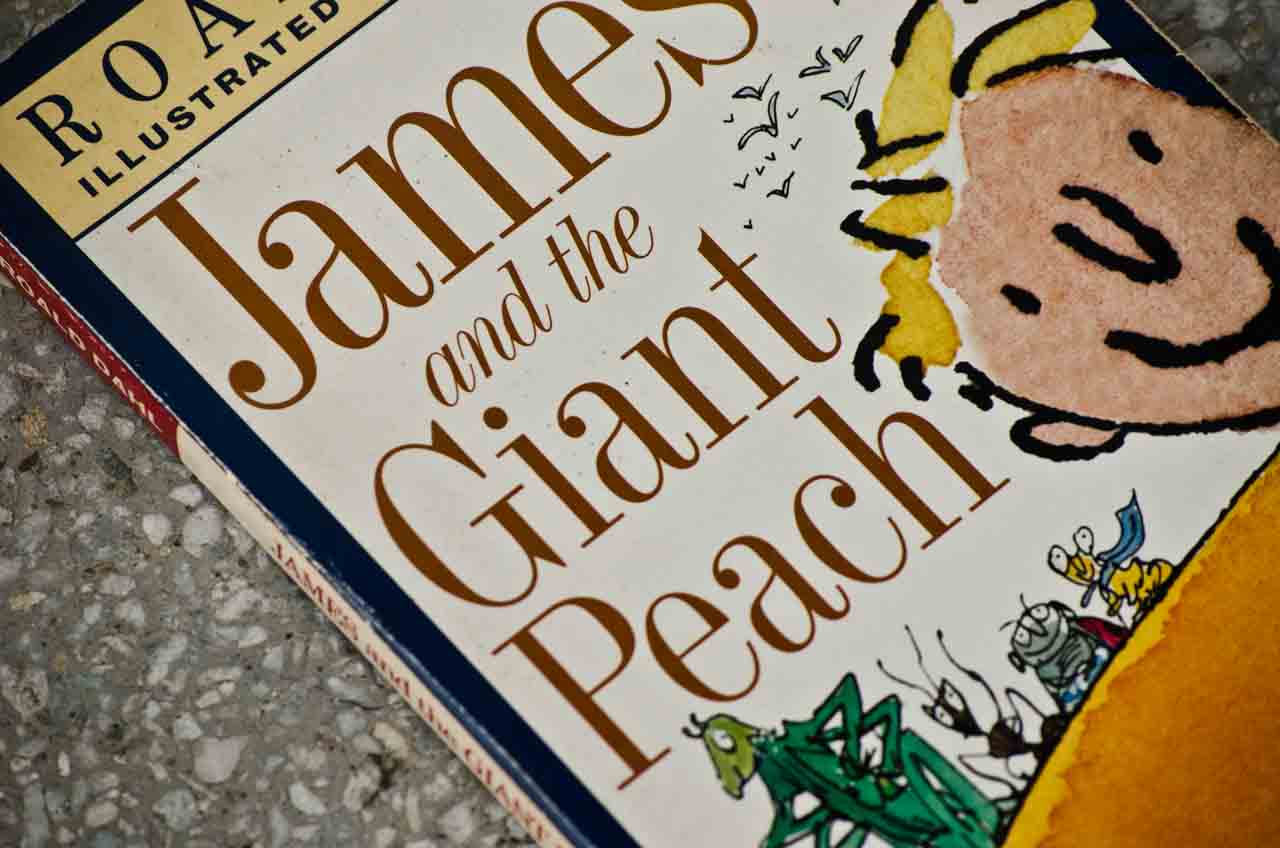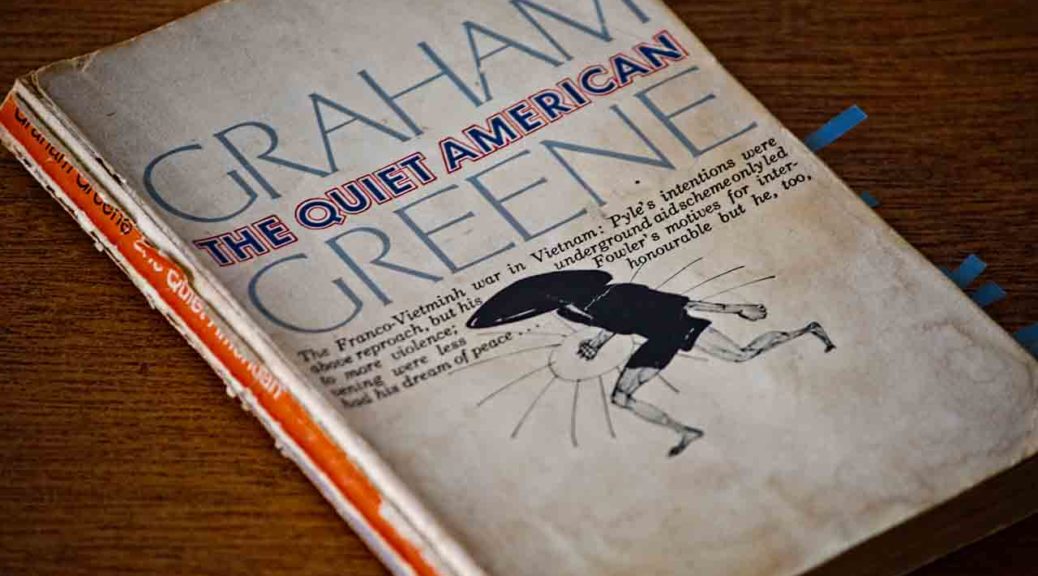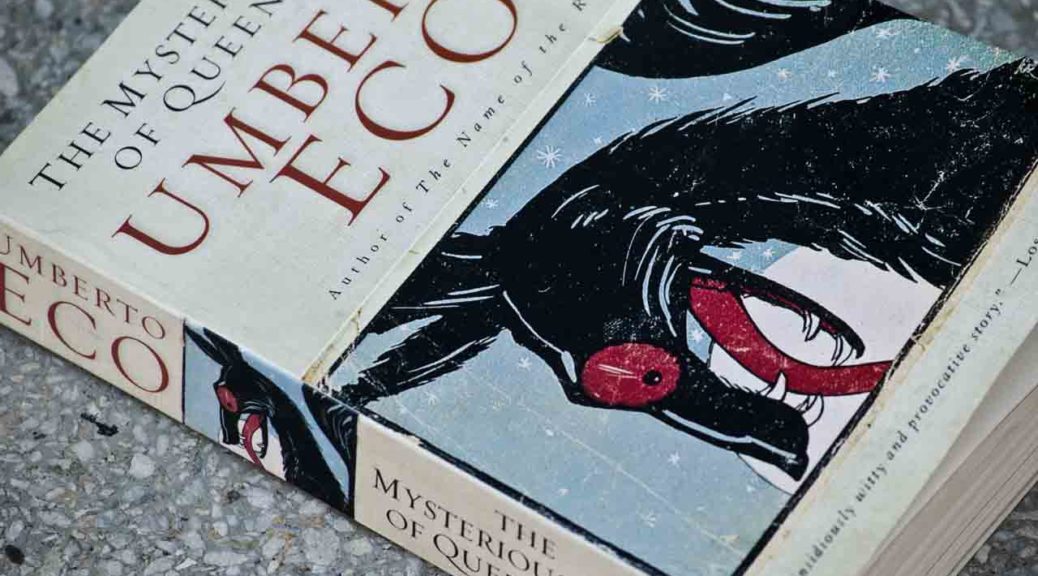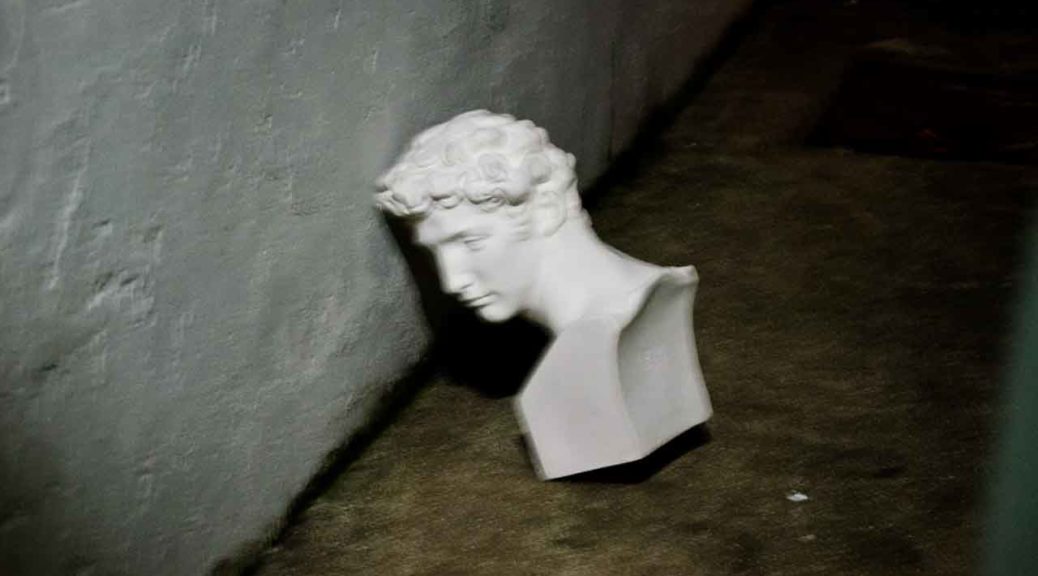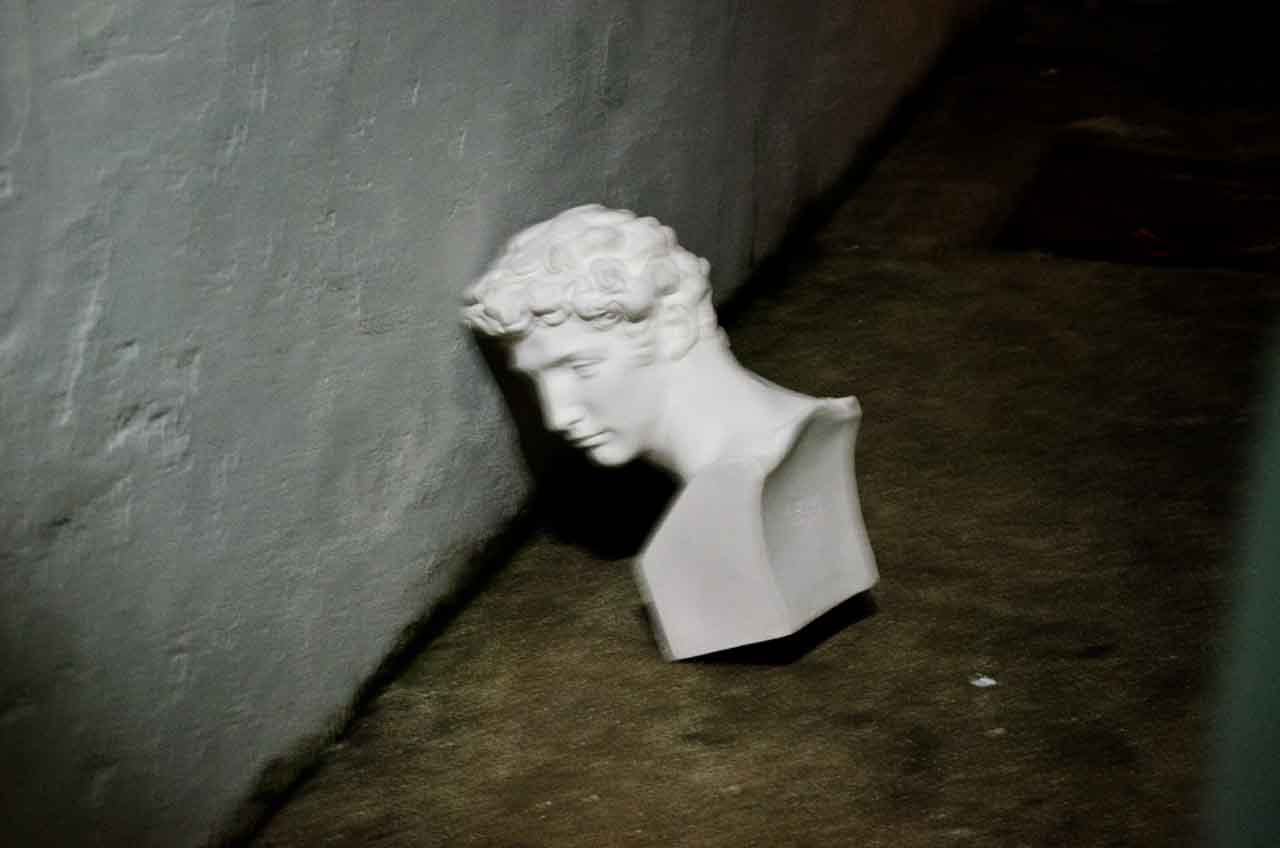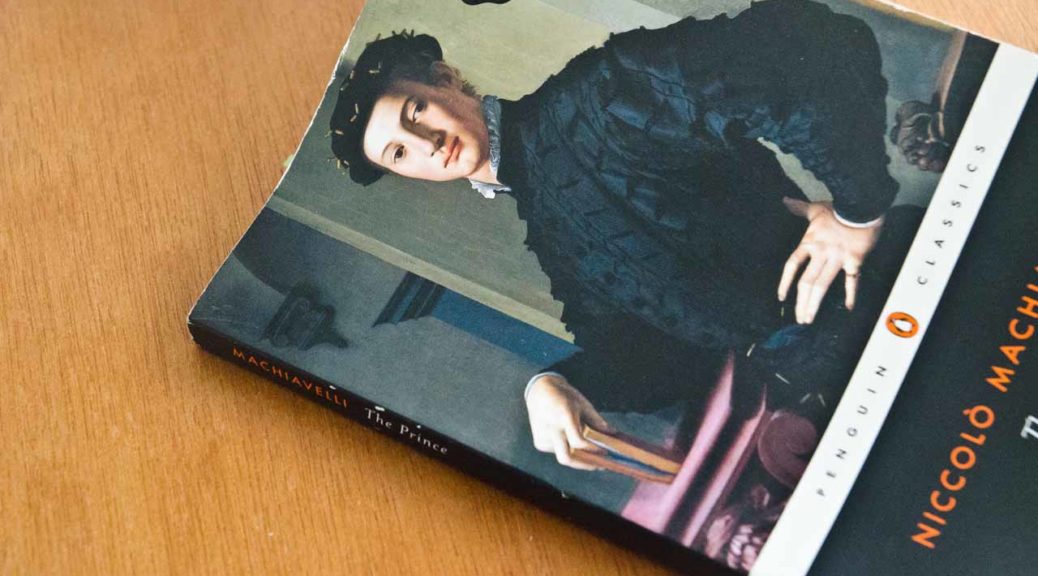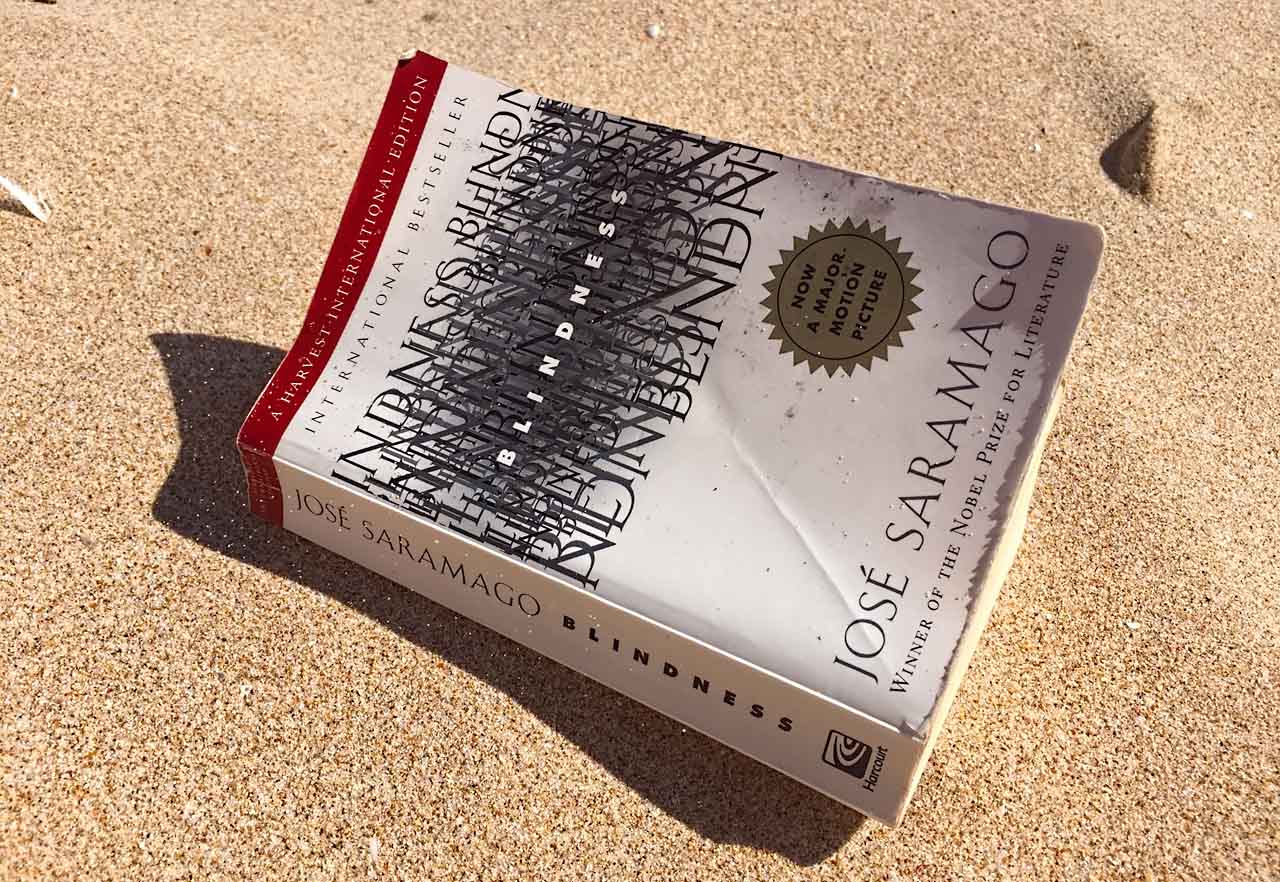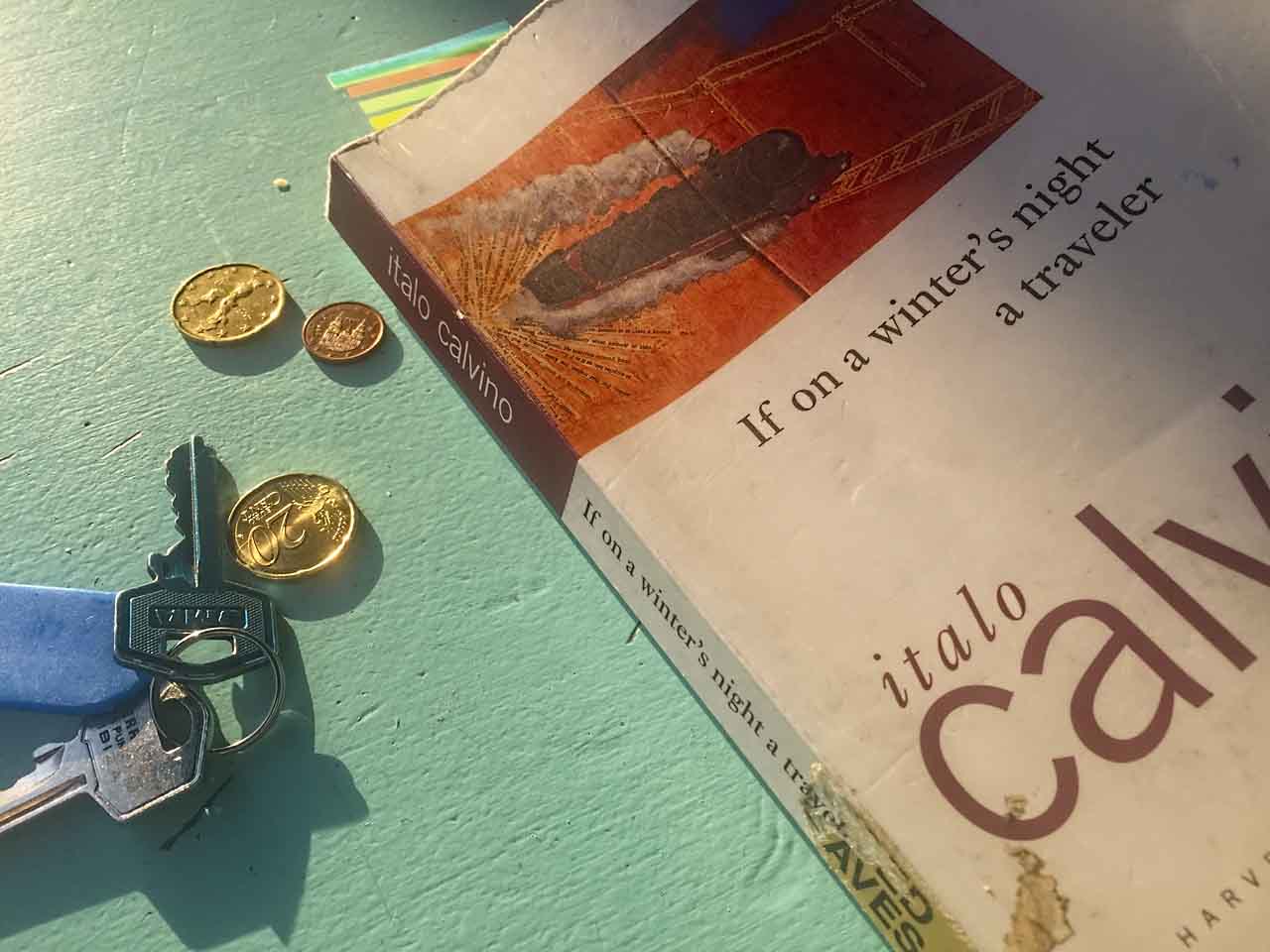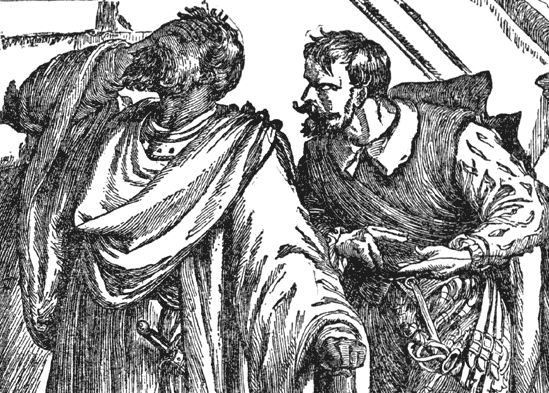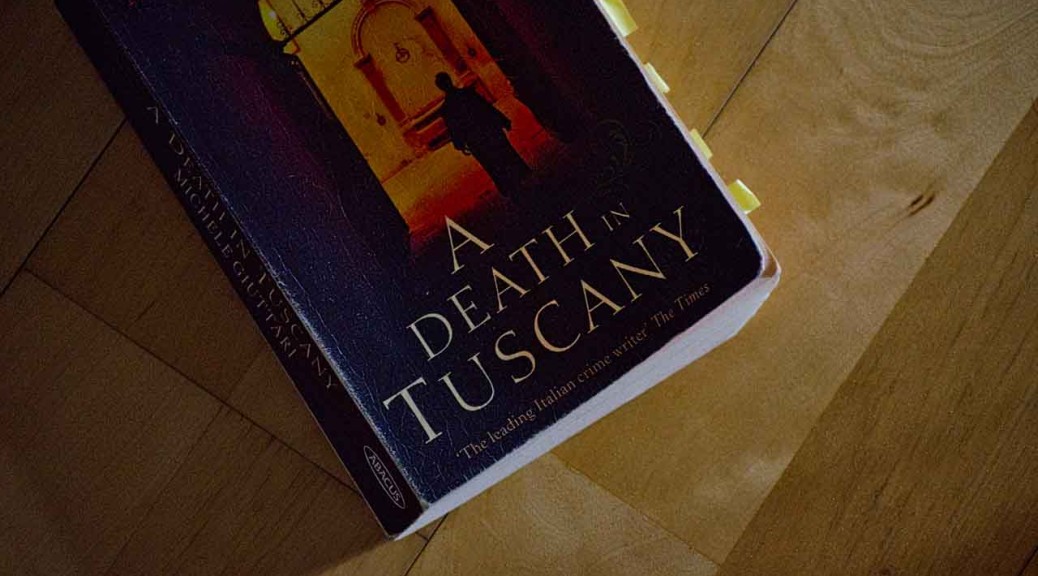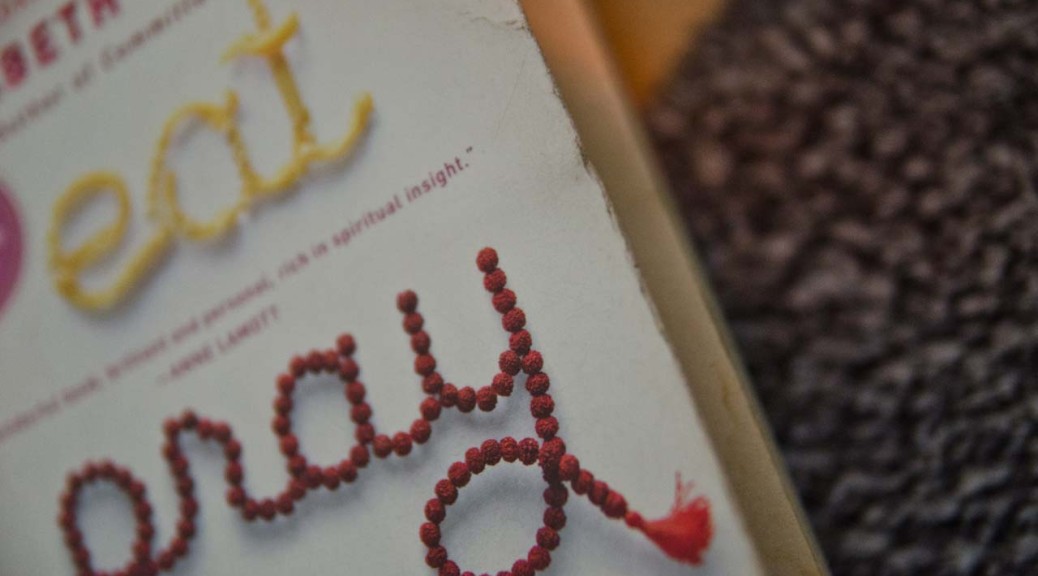Gilbert, Elizabeth. Eat, Pray, Love: One Woman’s Search for Everything Across Italy, India and Indonesia. New York, N.Y.; Penguin, 2007. Print. (First ed. 2006)
“When the Crusaders drove East for the holy wars, they witnessed worshipers praying with these japa malas, admired the technique, and brought the idea home to Europe as rosary.” p. 1
“the number 108 is held to be most auspicious, a perfect three-digit multiple of three, its components adding up to nine, which is three threes.” p. 1-2
“This division means that there are 36 tales in each section, which appeals to me on a personal level because I am writing all this during my thirty-sixth year.” p. 2
“It wasn’t so much that I wanted to thoroughly explore the countries themselves; this has been done. It was more that I wanted to thoroughly explore one aspect of myself set against the backdrop of each country,” p. 37
“Therefore, what we today call French is really a version of medieval Parisian. Portuguese is really Lisboan. Spanish is essentially Madrileño. These were capitalist victories; the strongest city ultimately determined the language of the whole country.” p. 57
“What this congress decided would henceforth be considered proper Italian was the personal language of the great Florentine poet Dante Alighieri. When Dante published his Divine Comedy back in 1321, detailing a visionary progression through Hell, Purgatory and Heaven, he’d shocked the literate world by not writing in Latin.” p. 58-59
“He wrote his masterpiece in what he called il dolce stil nuovo, the “sweet new style” of the vernacular, and he shaped that vernacular even as he was writing it, affecting it as personally as Shakespeare would someday affect Elizabethan English.” p. 59
“Dante writes that God is not merely a blinding vision of glorious light, but that He is, most of all, l’amor che move il sole e l’altre stelle… ” p, 60
il bel far niente “the beauty of doing nothing” p. 80
“For me, though, a major obstacle in my pursuit of pleasure was my ingrained sense of Puritan guilt. Do I really deserve this pleasure? This is very American, too–the insecurity about whether we have earned our happiness.”p. 81
“Dai, dai, dai, Albertini, dai … va bene, va bene, ragazzo mio, perfetto, bravo, bravo… Dai! Dai! Via! Via! Nella porta! Eccola, eccola, eccola, mio bravo ragazzo, caro mio, eccola, eccola, ecco–AAAHHHHHHHHH!!! VAFFANCULO!! FIGLIO DI MIGNOTTA!! STRONZO! CAFONE! TRADITORE! Madonna… Ah, Dio mio, perché, perché, perché, questo e stupido, e una vergogna, la vergogna… Che casino, che bordello… NON HAI UN CUORE, ALBERTINI! FAI FINTA! Guarda, non e successo niente.. Dai, dai, ah… Molto migliore, si si si, eccola, bello, bravo, anima mia, ah ottimo, eccola adesso … nella porta, nella porta, nell–VAFFANCULO!!!!!!!” p. 90-91

Plan Roms im Altertum. Via Wikimedia.
“The Augusteum warns me not to get attached to any obsolete ideas about who I am, what I represent, whom I belong to, or what function I may once have intended to serve… Even in the Eternal City, says the silent Augusteum, one must always be prepared for riotous and endless waves of transformation.” p. 100
magari (maybe, if only, I wish)
“Parla come magni.” p. 115
“Virginia Woolf wrote, “Across the broad continent of a woman’s life falls the shadow of a sword.” On one side of that sword, she said, there lies convention and tradition and order, where “all is correct.” But on the other side of that sword, if you’re crazy enough to cross it and choose a life that does not follow convention, “all is confusion. Nothing follows a regular course.”” p. 126
The Bhagavad Gita–that ancient Indian Yogic text–says that it is better to live your own destiny imperfectly than to live an imitation of somebody else’s life with perfection.” p. 127
“I drop out of my Italian-language school, having come to feel that it was interfering with my efforts to learn Italian, since it was keeping me stuck in the classroom instead of wandering around Italy, where I could practice with people in person.” p. 128
codega “a fellow you hired to walk in front of you at night with a lit lantern, showing you the way, scaring off thieves and demons, bringing you confidence and protection through the dark streets.” p. 135
“Or maybe I only want to go to Sicily because of what Goethe said: “Without seeing Sicily one cannot get a clear idea of what Italy is.”” p. 148
“Historians say that rhetoric was invented in Syracuse, and also (and this is just a minor thing) plot.” p. 150
“In a world of disorder and disaster and fraud, sometimes only beauty can be trusted. Only artistic excellence is incorruptible.” p. 152
“You were given life; it is your duty (and also your entitlement as a human being) to find something beautiful within life, no matter how slight.” p. 154
“Greek stoic philosopher Epictetus: “You bear God within you, poor wretched, and you know it not.”” p. 161
“”Our whole business therefore in this life,” wrote Saint Augustine, rather Yogically, “is to restore to health the eye of the heart whereby God may be seen.”” p. 162
“the monk quoted to me from the Bhagavad Gita, the most sacred ancient text of Yoga: “Oh Khrisna, the mind is restless, turbulent, strong and unyielding. I consider it as difficult to subdue as the wind.”” p. 174
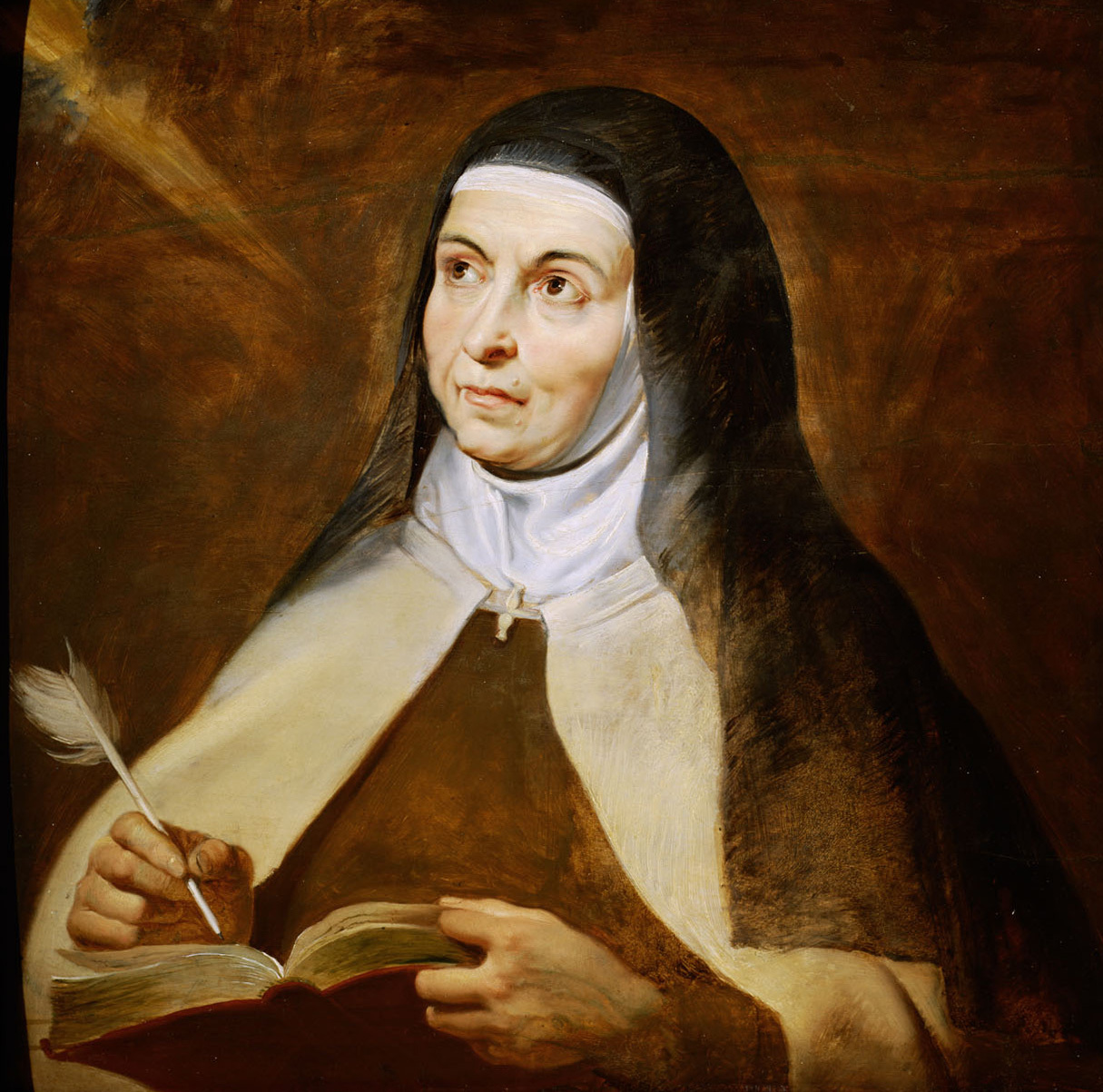
Saint Teresa of Ávila by Peter Paul Rubens. Via Wikimedia.
“The most difficult challenge, the saint wrote in her memoirs, was to not stir up the intellect during meditation, for any thoughts of the mind–even the most fervent prayers–will extinguish the fire of God.” p. 190
“You gotta stop wearing your wishbone where your backbone oughtta be.” p. 199
“Zen masters always say that you cannot see your reflection in running water, only in still water.” p. 226
“”The world is afflicted with death and decay, therefore the wise do not grieve, knowing the terms of the world,” says an old Buddhist teaching.” p. 229
“Half the benefit of prayer is in the asking itself, in the offering of a clearly posed and well-considered intention.” p. 235
“Because if you can’t learn to master your thinking, you’re in deep trouble forever.” p. 236
“”Guilt’s just your ego’s way of tricking you into thinking that you’re making moral progress.”” p. 244
(Instructions for Freedom) “3. The day is ending. It’s time for something that was beautiful to turn into something else that is beautiful. Now, let go.” p. 245
“7. Let your intentions be freedom from useless suffering. Then, let go.” p. 246
“the rules of transcendence insist that you will not advance even one inch closer to divinity as long as you cling to even one last seductive thread of blame.” p. 247
“To know God, you need only to renounce one thing–your sense of division from God.” p. 255
Sextus “”The wise man is always similar to himself.” p. 256
“We search for happiness everywhere, but we are like Tolstoy’s fabled beggar who spent his life sitting on a pot of gold, begging for pennies from every passerby, unaware that his fortune was right under him the whole time. Your treasure–your perfection–is within you already. But claim it,” p. 262
“”All know that the drop merges into the coean, but few know that the ocean merges into the drop,” wrote the sage Kabir” p. 265
“”Imagine that the universe is a great spinning engine,” he said. “You want to stay near the core of the thing–right in the hub of the wheel–not out at the edges where all the wild whirling takes place,” p. 275
“In the dead of night the dogs howl about how misunderstood they are.” p. 312
“The word paradise, by the way, which comes to us from the Persian, means literally “a walled garden.”” p. 313
“The next piece of land was rejected because it was too close to a river, which, as everyone knows, is where ghosts live.” p. 411
“We get seduced by our own mantras (I’m a failure… I’m lonely…I’m a failure… I’m lonely…) and we become monuments to them.” p. 433
“Saint Anthony once wrote about having gone into the desert on silent retreat and being assaulted by all manner of visions–devils and angels, both… you can only tell which is which by the way you feel after the creature has left your company.” p. 435

The Meeting of Saint Anthony and Saint Paul, Master of the Osservanza, 15th century. Via Wikimedia.
Save
Save
Save
Save
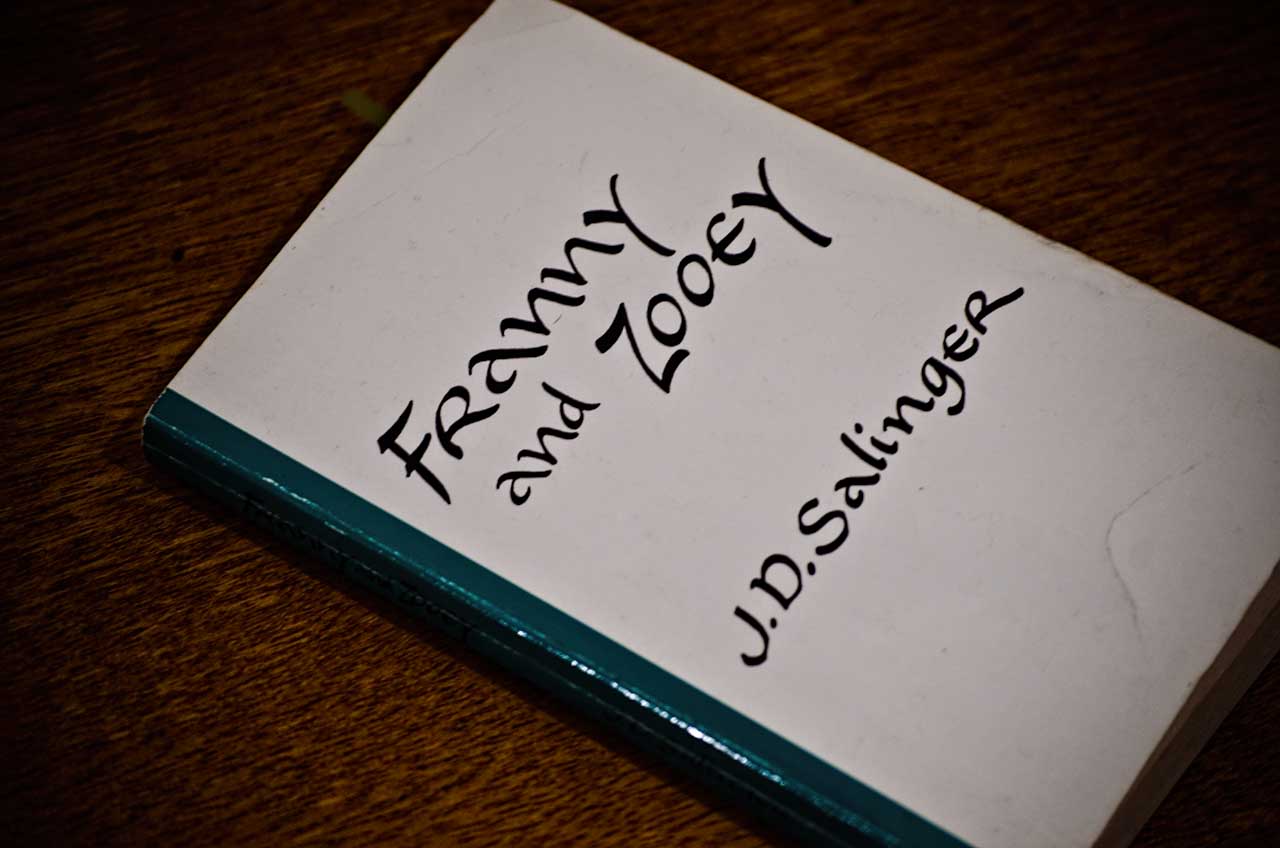
Salinger, J.D. Franny and Zooey. Little, Brown, and Company, 1961.
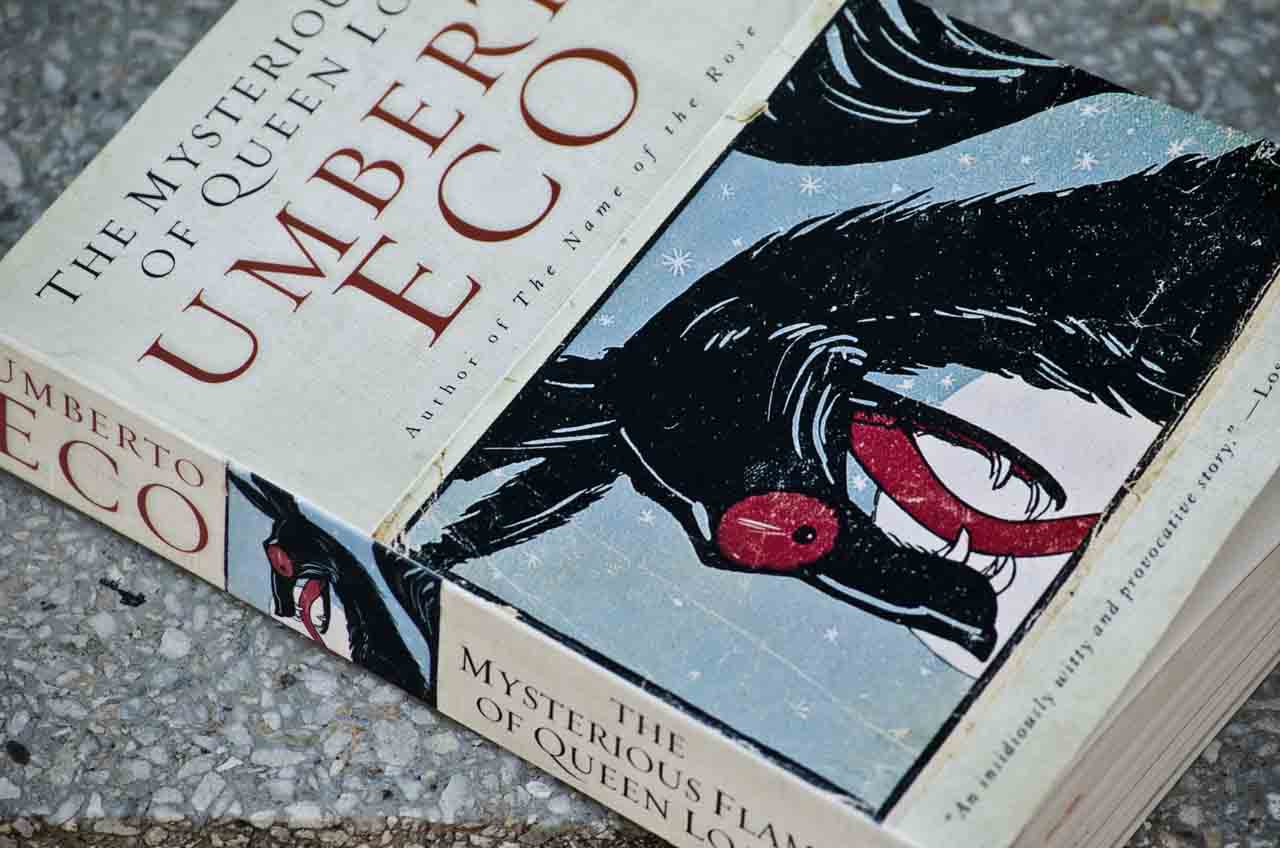 Eco, Umberto. The Mysterious Flame of Queen Loana. Harcourt, 2005. First published 2004.
Eco, Umberto. The Mysterious Flame of Queen Loana. Harcourt, 2005. First published 2004.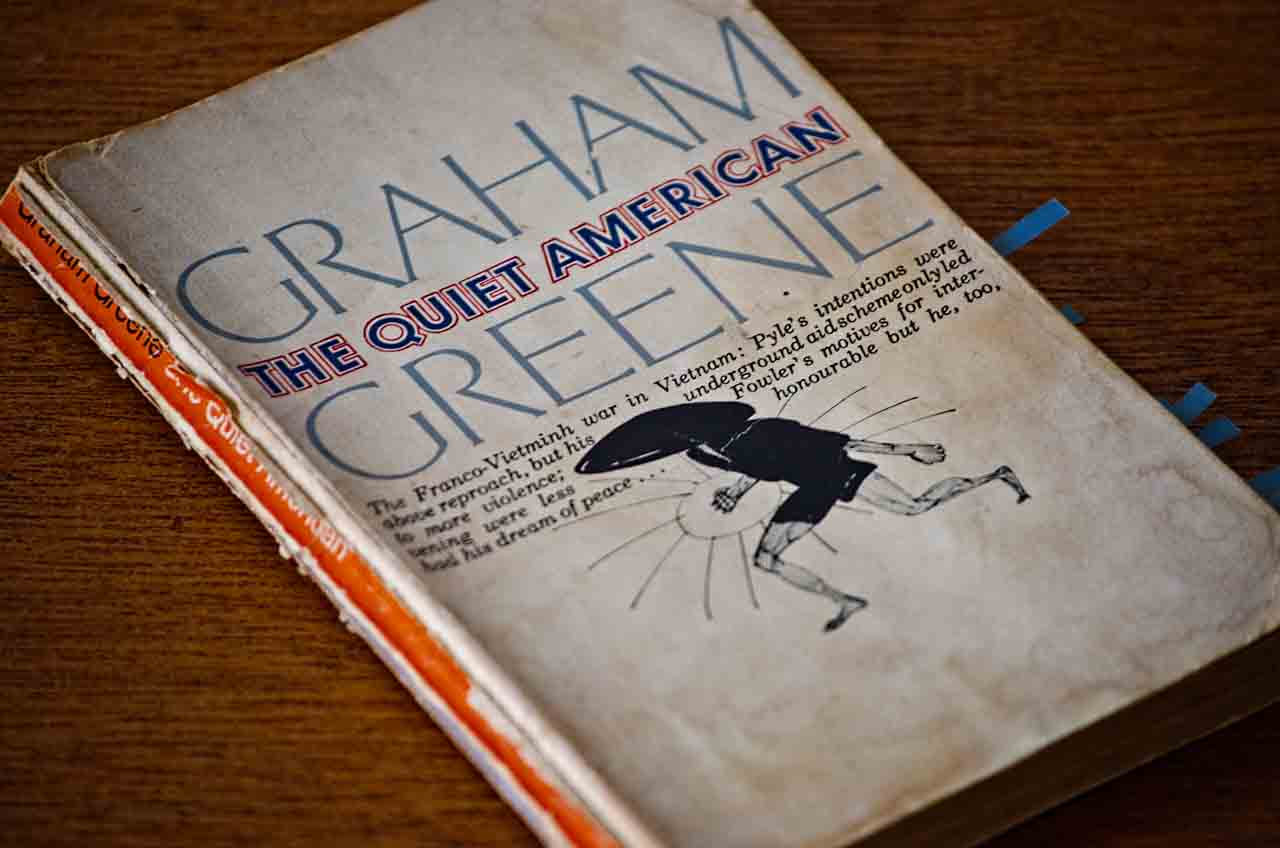 Greene, Graham. The Quiet American. Penguin Books, 1969. First published 1955.
Greene, Graham. The Quiet American. Penguin Books, 1969. First published 1955.